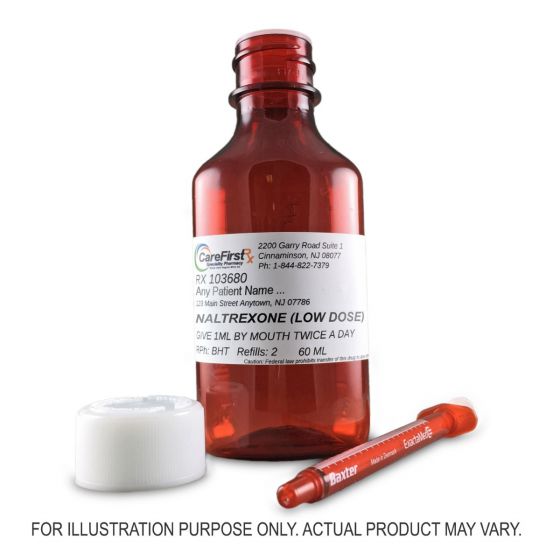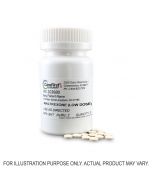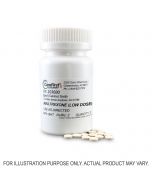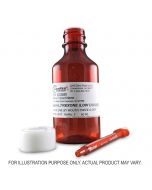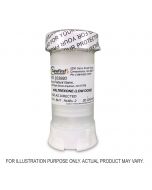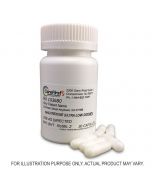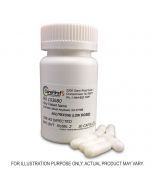Naltrexone (Low Dose) Suspension Compounded
Low dose naltrexone may be beneficial for the treatment of various conditions including chronic pain and autoimmune illnesses. Naltrexone is typically used to treat opioid use disorder and alcohol abuse disorder. It is classified as an opioid antagonist blocking the effects of exogenously administered opioids. Naltrexone at low doses (0.5mg - 6mg) has been prescribed for its possible analgesia and anti-inflammatory effects, which have not been observed at higher doses.
This medication requires a prescription.
To process your order we will require a prescription from you or your Prescriber. We will only compound and dispense upon receipt of a valid patient specific prescription. Please note that our compounds are exclusively provided for individual patient and are not for office use.
- Your prescriber can mail or fax in the prescription
- You can mail in the original prescription
- We can contact your prescriber for you
- You can transfer your prescription from another pharmacy
Are you a licensed Prescriber?
- We have convenient ways to get your prescription to us:
- Fax to (800) 786-1405 or (844) 922-7379
- Send electronically (e-prescribe) by:
- Searching for CareFirst Specialty Pharmacy in Mount Laurel, NJ 08054
- Using our NCPDP# 3151266
- Phone into (844) 822-7379
- For more information about our products and services:
- Please complete the prescriber form online
- Email us at csr@cfspharmacy.com
Looking for a Different Strength?
Contact us for a Quote.
We are a nationally accredited PCAB compounding pharmacy and a .Pharmacy verified website. A verified .Pharmacy website designation ensures our patients and prescribing partners that our website is verified and safe.
Actual product image may vary.
Naltrexone is typically used to treat opioid use disorder and alcohol abuse disorder. It is classified as an opioid antagonist blocking the effects of exogenously administered opioids. However, at low doses (0.5mg - 6mg) oral naltrexone has been prescribed for its possible analgesia and anti-inflammatory effects, which have not been observed at higher doses. Low dose naltrexone may be beneficial for the treatment of various conditions including chronic pain and autoimmune illnesses.
Pronunciation:
(nal TREKS one)
Other Names:
Vivitrol (Brand name) and APO-Naltrexone; ReVia (Canada)
Drug Class:
Antidote, Opioid Antagonist
Mechanism of Action:
As a pure opioid antagonist, naltrexone competes with opioid receptors and can displace opioid drugs from the receptors. Naltrexone antagonizes the effects of opioids with long-lasting effects.
Drug Interactions:
Do not take with opioids. May result in precipitation of opioid withdrawal symptoms and decrease the effectiveness of opioids.
Do not take with bremelanotide. May result in naltrexone treatment failure.
Do not take with opioid antagonists (Naldemedine, Naloxegol). May result in increased risk of opioid withdrawal.
Adverse Effects:
Common side effects you might experience: nausea/vomiting, gastrointestinal pain/cramps, joint/muscle pain, difficulty sleeping, anxiety or headaches.
Tell your doctor if you begin to have any of these symptoms following naltrexone administration: yellowing of the skin (jaundice), experience any suicidal thoughts, symptoms of opioid withdrawal, or mild symptoms that do not go away.
To minimize risk of withdrawal syndrome, patients should be opioid-free for at least 7-10 days.
Administration:
May be administered by mouth with or without food. Administration with food or after food may minimize gastrointestinal adverse effects. Follow instructions directed by your healthcare provider.
Dosing:
Contact your healthcare provider for specific dosing instructions.
Pregnancy:
Pregnancy testing is recommended prior to the initiation of naltrexone therapy for opioid use disorder. Naltrexone and its metabolite (6-beta-naltrexol) has been shown to cross the placenta. Limited data exists about use of naltrexone during pregnancy, patients who are pregnant should speak to their doctor about the risks and benefits of naltrexone therapy.
Breastfeeding:
Naltrexone and its metabolite (6-beta-naltrexol) can be seen in breast milk. Patients should speak to their doctor about the risk and benefits of naltrexone therapy.
Children/Pediatrics:
Safety and effectiveness have not been established in pediatric patients
References:
- Naltrexone [monograph]. In: Lexicomp online [online database]. Hudson, OH: Lexicomp (accessed 2020 June 11).
- Naltrexone [monograph]. In: Micromedex [online database]. Greenwood Village, CO: Truven Health Analytics (accessed 2020 June 11).
- Younger, J., Parkitny, L., & McLain, D. (2014). The use of low-dose naltrexone (LDN) as a novel anti-inflammatory treatment for chronic pain. Clinical rheumatology, 33(4), 451–459. https://doi.org/10.1007/s10067-014-2517-2.
- Toljan, K., & Vrooman, B. (2018). Low-Dose Naltrexone (LDN)-Review of Therapeutic Utilization. Medical sciences (Basel, Switzerland), 6(4), 82. https://doi.org/10.3390/medsci6040082
Naltrexone
Consult your prescriber
Use the medication as prescribed by your doctor. The information provided is not intended to cover all possible uses. This information is generalized and not intended as specific medical advice. If you have questions about the use of your prescription, please contact your prescriber.
Troches and suppositories require refrigeration (ice packs) and will incur an extra charge of $19.95 per order.

